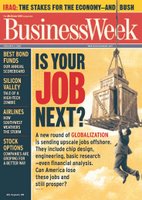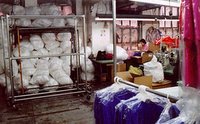There are several options you can choose from when considering your journal. Pick one of the following questions and answer it fully in a journal of a minimum of 150 words.
1. With jobs going overseas (outsourcing), companies say that they need to do this to compete with other companies. For instance, companies send work overseas to cut costs and see their stock price jump as a result. Critics say that these foreign workers don't pay taxes to the American government like American workers would; also, the unemployed American workers become part of the unemployment pool. They may be overqualified for entry level jobs.
http://www.jsonline.com/story/index.aspx?id=519224 - Milwaukee Journal Sentinel's business article on outsourcing and its benefits.

Is there a limit of jobs that American companies should be allowed to export overseas? Or do American companies need to compete with other companies and shouldn't be held back by government restrictions?
2. Products made in foreign countries by workers (some of whom are under 18) allow American companies to keep prices lower for us, the American consumer. American businesses aren't bound by U.S. child labor laws but bound by the laws of the country. Plus, U.S. companies don't have to pay American minimum wages. This is taken from www.sweatshopwatch.org:
"According to independent labor rights organizations in Hong Kong, a living wage in China would be about $0.87/hour. Minimum wage rates vary as they are set by each provincial government, however, they do not meet this living wage. Shanghai's minimum is $0.21/hour, and Guangzhou's $0.26/hour.
("Behind the Label: Made in China," March 1998, Charles Kernaghan/National Labor Committee.) "

The question is: are you willing to continue buying goods from companies that use labor like this b/c of the price? Or are you willing to buy from companies that don't employ child labor or cheap labor overseas? Why? Explain. See the flyer or see www.sweatshops.org. http://www.sweatshopwatch.org/media/pdf/sweatfree_handout05.pdf